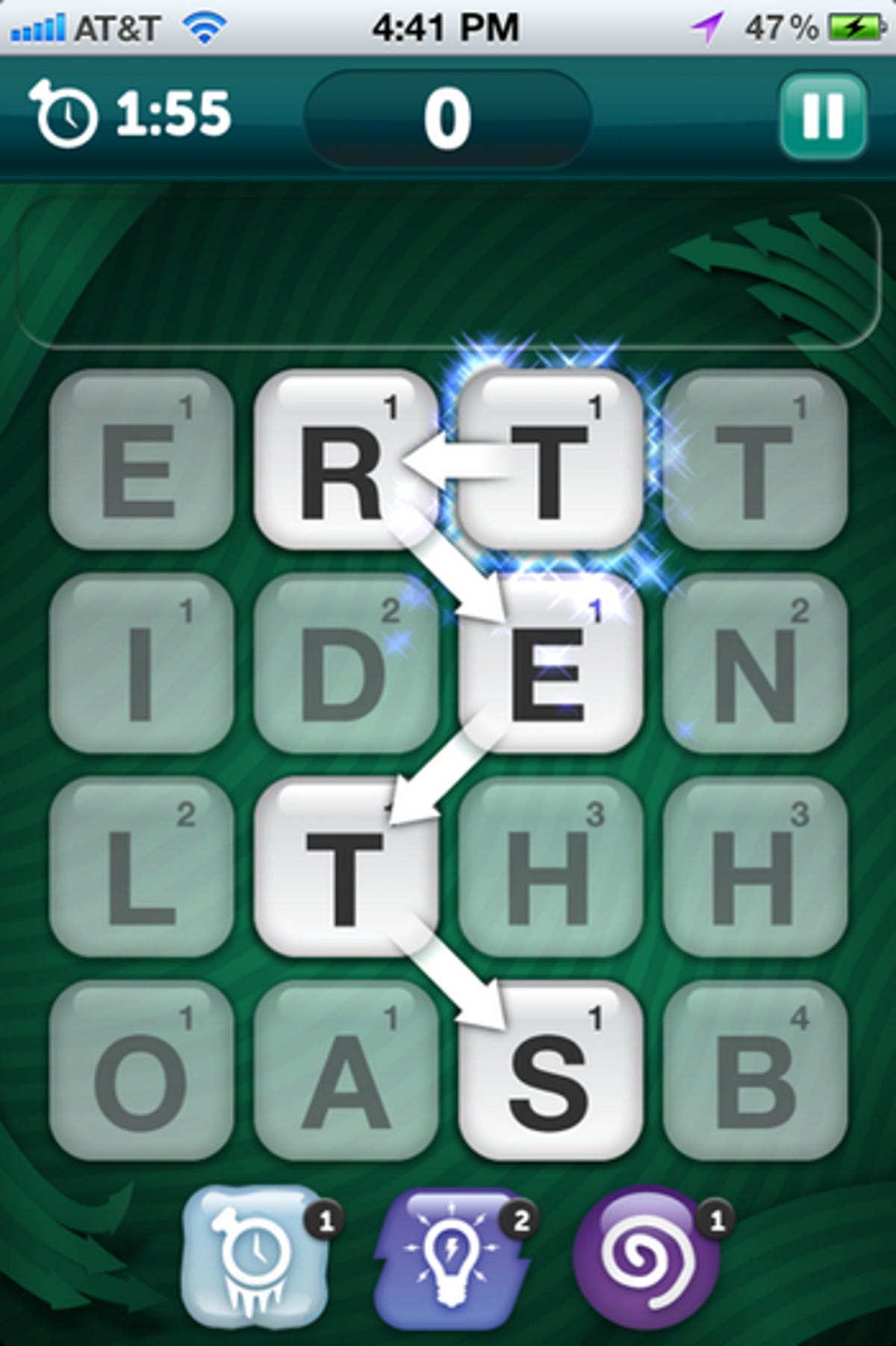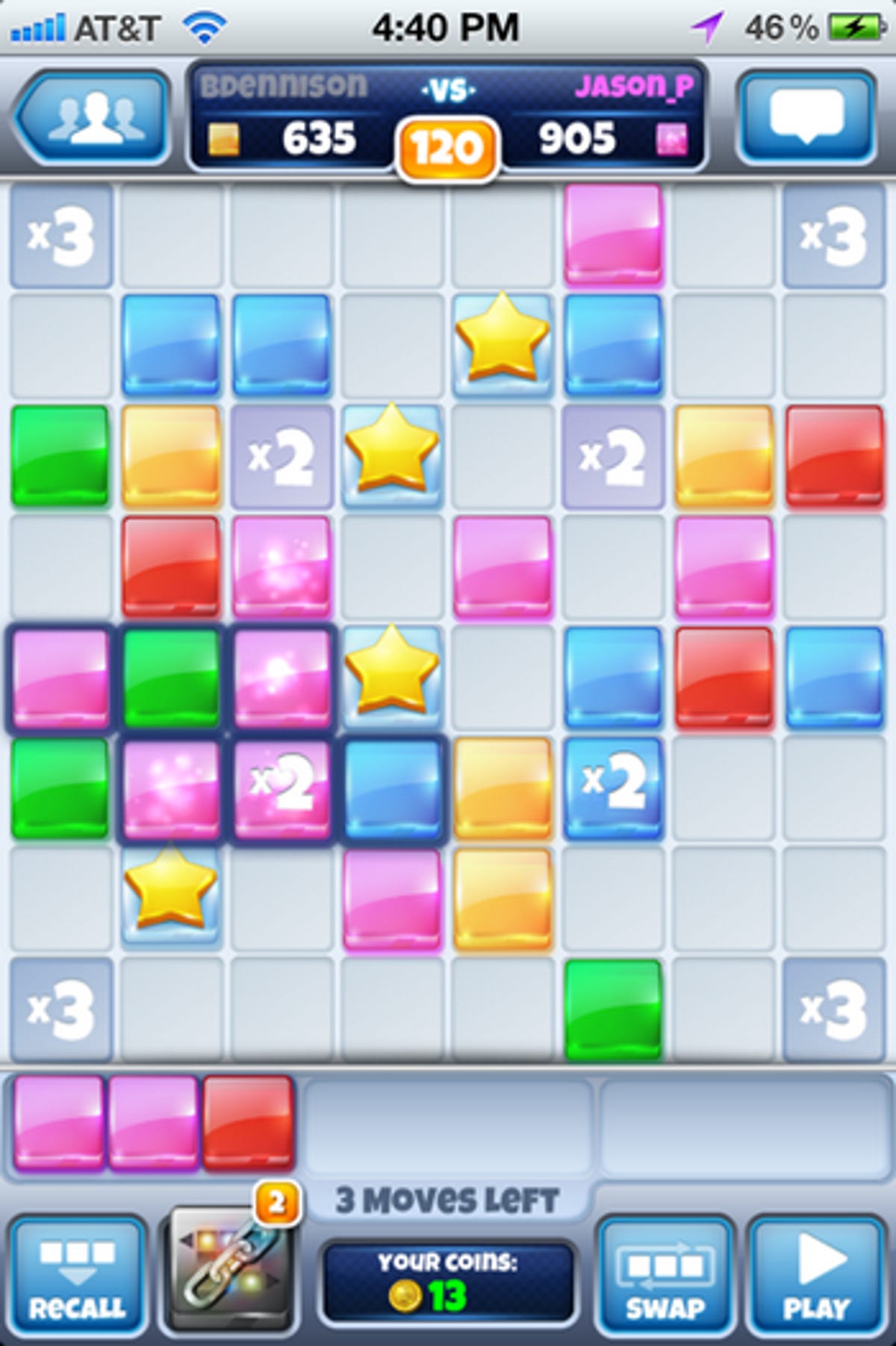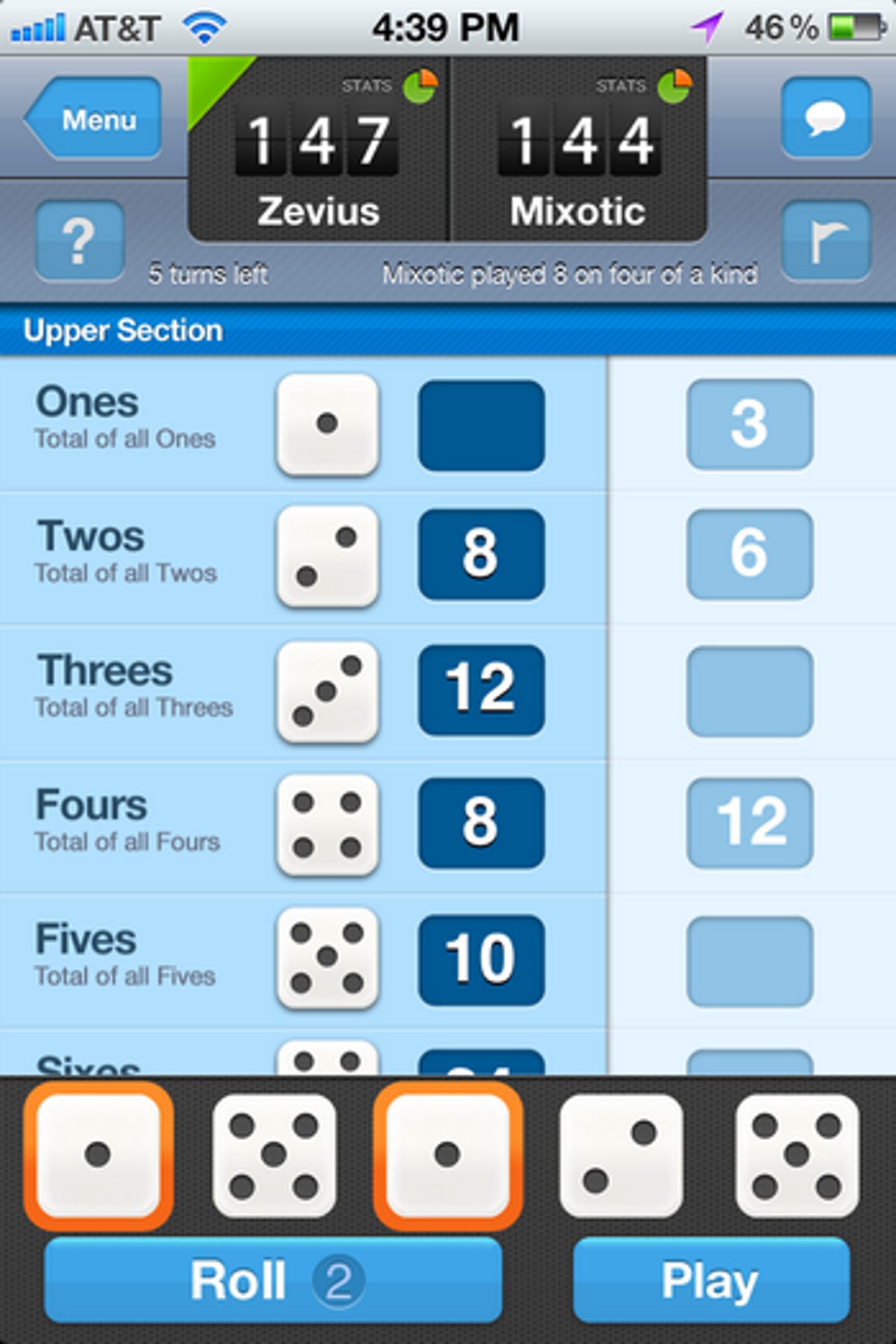There are several games on both of my iOS devices at any given time from just about every genre. But there are only a few games I go back to on an almost daily basis and that’s because they are fun, addictive, and a great way to keep in touch with friends and family.
These “casual” games are turn-based and require you to connect with a friend to start playing — there is no single-player option with this collection. They have also been around for a while, but that’s kind of the point: these are the games I continue to play because it only requires a couple of minutes to take my turn and send it to a friend. While it is sometimes a pain to go in and complete my turns (especially when life gets busy), the overall experience of competing with your friends and family is a good one and acts as a way to stay connected, even in our busy everyday lives.
This week’s collection of apps is all about connecting with friends with casual games. The first plays like an old table-top classic, with modern extras that keep the game fun. The second is a color-matching game where you lay down groups of three tiles for points. The third is a dice game where you’ll take turns with a friend to get specific dice rolls.


Screenshot by Jason Parker/CNET
Scramble With Friends (iPhone|Android – 99 cents), from Zynga, has enjoyed much success in the iTunes App Store with classic Boggle-like gameplay, and it’s a game that I go back to regularly on my iPhone.
As in Boggle, the object of the game is to find as many words as you can in a jumbled grid of letters by connecting adjacent letters to form words. You can form words vertically, horizontally, and diagonally by touching a letter and swiping across more letters until you complete a word. You have 2 minutes to find as many words as possible. There’s nothing new here for anyone who has played classic Boggle, but Zynga’s familiar interface and social-networking site connectivity make it easy to jump in and start playing with your friends from wherever you are.
Scramble with Friends lets you sign in through Facebook, then shows you who in your friend list already has the game. From there, you can quickly invite a friend to a game and play your first 2-minute round. When you’re done, simply wait for your friend to play a turn and it’s back to you (just like Words with Friends). You play three rounds to compete for the highest total score.
As Scramble with Friends has evolved, new extras have been added to kick the game up a notch. Before beginning a round, you can select from four Power-Ups to give you a leg up, and your opponent has the same options. The freeze power-up stops time, giving you more than the allotted 2 minutes to find a few extra words. The inspiration power-up actually shows you the location of three words you have not yet selected. If you choose Scramble, you can mix up all the tiles. The latest power-up to the party is Vision, where the game challenges you to find three words, and, once found, give you 15 seconds of extra time. These bonus power-ups add a little something more to the classic game of Boggle and keep the action interesting.
Using a tried-and-true classic word game as its starting point, an intuitive interface, and easy game matching, it’s no wonder Scramble with Friends is a big success in the iTunes App Store and on my iPhone. I think anyone who likes word games like Boggle should immediately download this well-polished title.


Screenshot by Jason Parker/CNET
Matching with Friends ($2.99, full version – Free, ad-supported version) is another Zynga app that lets you play a turn-based game with a friend on the iPhone only. But instead of playing a word game, this time you’ll be strategically placing matching colored blocks on a game board, then sending your move to a friend.
Like Scramble with Friends, Matching with Friends makes getting connected with people easy. Upon launch you’ll be asked to sign in through either your Facebook or Twitter account. Once logged in, you can search for other players from your friends list or get automatically matched with a random player.
I started up a few games when Matching with Friends was released, and I’m still playing with the same people now. Immediately when I started, I found the colors vibrant, the controls easy to understand, and the bonus alerts self-explanatory. The only difficult thing about Matching with Friends is how to describe the gameplay.
The game is a little confusing at first, but it teaches you the ropes, letting you play a short single-player game to show you the basics. The object is to use your three sets of three jelly cubes and match them with the colors of the jelly cubes on the board. You can rotate your three cubes to match up better with cubes on the board (touching more cubes of the same color) and to land on multiplier tiles for big points. When you’re done placing all three sets of three cubes and you’re satisfied with the positioning, you end your turn, sending your moves to your opponent.
Each turn plays out in the same way, but there are a few variables that add to the fun. You can swap your jelly cubes for different color variations that might work better with what’s on the board, and you also have bonus items like a bomb that can get rid of a colored cube (or group of cubes) that doesn’t fit with your strategy.
What the gameplay and bonus items amount to is a challenging strategy game that requires thought, but quickly becomes second nature as you try to formulate the best move possible for the most points in each turn.
If you haven’t tried Matching with Friends, check out the free, ad-supported version linked to above. Once you start getting the hang of matching up colors and increasing your multiplier, I think you’ll be hooked like I am.


Screenshot by Jason Parker/CNET
Dice with Buddies (iPhone|Android – $1.99) is another great casual game, but this time you’re playing a turn-based game similar to Hasbro’s Yahtzee. As with the other games you can play with friends, family, or match up with a random opponent, but there is no single-player option.
The game plays almost exactly like Yahtzee. In the beginning you have a clear board that you’ll slowly fill up with each turn. The dice rolls required to finish your board are laid out with die numbers in the upper section of the board (number of threes or fives for example), and more complex combos in the lower section (four of a kind or large straight). With each turn, you get three rolls of the dice, but you can select specific dice to hold, then roll the remaining dice to get a better hand. Though it’s a little hard to explain, Yahtzee players will feel right at home, and it’s much easier to just start playing to get the hang of the game.
Dice with Buddies might be the least involved of this collection, and you’ll get through turns extremely quickly after only a couple of games. But something about rolling the dice and trying to get the best scores for each category is wildly addictive, and I think most people will agree that it’s one of the better casual turn-based games available.
Like I said at the outset, none of these games are new, but instead are old standbys that keep you coming back on a daily basis. If you’re looking for a great way to connect up with a buddy and play some casual games, I recommend all the games in this collection.



